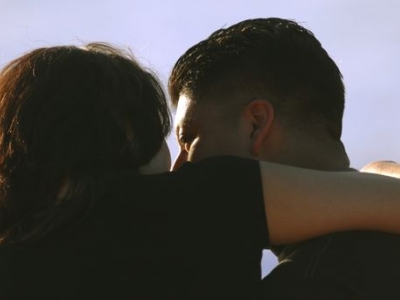
Puberty Blues: TV Review
70's sex culture revisited ... but has anything really changed?
Flared jeans, crocheted bikinis, safe sunburns and models after school. Yes, the 1970s has returned in the form of new series Puberty Blues (Network TEN, Australia). But have we managed to learn anything in the intervening 40 years?
Based on the best-selling novel by Gabrielle Carey and Kathy Lette, Puberty Blues promises to take Australian viewers back to the 1970s, to experience many of the same trials teens and parents still face today. Debbie and Sue are two teenage girls growing up in a beachside suburb, attempting to find their identities in a sea of adolescent culture. Despite the best efforts of their parents, they are drawn into a world of underage drinking and sexual experimentation that threatens to mark their characters for years to come.
Puberty Blues is a retrospective that will appeal to both teens and adults trying to find the wisdom to navigate a child's most turbulent years. Thankfully the producers haven’t allowed the plotline to be hijacked by our present amazement at 70's clothes, hair or cooking habits. Paisley ties, sun-bleached hair and ANZAC biscuits are there in abundance, but they stay firmly in the background as the series directs our attention to the bigger lessons.
70's sex culture
Carey and Lette’s book was a criticism against the way women were objectified in 70s Australia, with young girls submitting to the sexual appetites of teenage boys because they’d mistaken lust for love. The television series continues the same theme with even the toughest girls concluding that the way to get their boyfriends more interested in them is through their bodies.
Probably the most disturbing scene in a very well written first episode was a girl being dragged off against her will by her amorous boyfriend, and none of the dozens of witnesses raising an eyebrow. We may have learnt many lessons from the 70s, including the ability to recognise an assault when it’s taking place but we’re still a long way from what the Bible would call wisdom. Consequently parents should be aware that there is a lot of allusion to sexual behaviour in this series, and the sort of nudity that is supposed to reflect the more risqué nature of the 70s but can actually end up being a problem in itself. In short, if the producers didn’t want to encourage the objectification of women, they shouldn’t put nude pictures of girls on their characters’ walls. Trust me, they weren’t compulsory in the 70's ... even amongst non-Christians.
The past is getting hazy
The sort of nostalgia that Puberty Blues could end up playing to contains twin dangers. On the one hand, it encourages us to look at the past through a haze of sentimentality that obscures all of the difficulties it contained. On the other, it allows us to handle our history with a sense of superiority that suggests we’ve risen above it, when all that’s really happened is that years have passed. We may not have changed at all, just stood still and allowed time to carry us forward.
The only wisdom that can really evaluate our success in this or past decades is that which stands outside of time. When the Bible wants to describe God’s greatness, it uses words like everlasting because He existed before our fads and will outlast every one of them:
Before the mountains were brought forth, or ever you had formed the earth and the world, from everlasting to everlasting you are God. (Psalm 90:2)
By that measure, the wisest thing Debbie and Sue could do in Puberty Blues is recognise their own limitations and become Christians. But trust me, that wasn’t any more appreciated in the 70s than it is today.
Watching Puberty Blues with your kids
Puberty Blues is one of those television series that looks set to be a rewarding drama full of life lessons, but should still be watched cautiously. There will be language and sexual content reflective of teenagers growing up in an age just as promiscuous as our own. If you decide to watch this with your teen son or daughter, here's some questions worth asking:
- Why do Debbie and Sue want so desperately to belong to a group that doesn’t even like them?
- Where do Debbie and Sue get their understanding of what really matters?
- If Debbie and Sue were real people, looking back today on the things they valued, how do you think they’d feel?
- Who can teach you wisdom that will be valuable to every generation?
For more articles from Growing Faith, subscribe to our monthly e-newsletter.
To hear about the latest books and resources from Youthworks Media, subscribe here.







